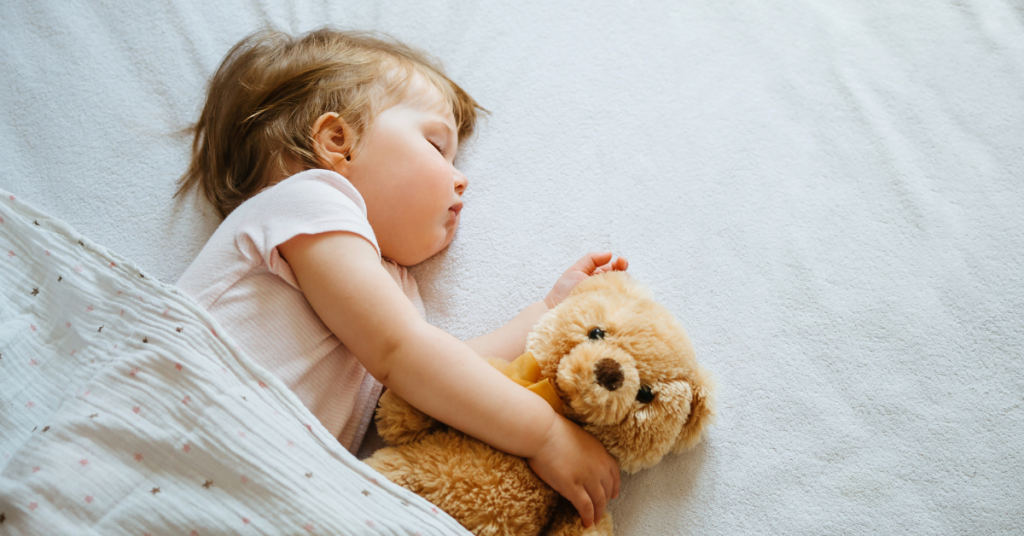
Are Waterproof Mattress Protectors Safe for Babies?
We’ve gathered insights from parents and experts. Here’s the simplified answer:
Welcoming a newborn into the world is an exciting time filled with joy and preparation. As parents, we want to create the perfect nursery for our little ones, including choosing the right bedding for their crib. One important consideration is whether to use a waterproof mattress protector for your baby’s mattress. In this article, we’ll explore the safety and benefits of using a waterproof mattress protector for your baby.
Table of Contents
ToggleWhat is a Waterproof Mattress Protector?
A waterproof mattress protector is a cover that goes over your baby’s mattress to protect it from accidents, spills, and stains. These protectors are designed to be water-resistant, keeping moisture from seeping into the mattress. They come in various materials, including vinyl, polyester, and organic options like bamboo.
Are Waterproof Mattress Protectors Safe for Babies?
Yes, waterproof mattress protectors can be safe for babies when used correctly. Here are some guidelines to ensure your baby’s safety:
- Choose a protector that fits snugly around the mattress and doesn’t create any gaps or loose areas.
- Regularly check to make sure the protector remains in place during the night.
- Position the protector below your baby’s chest, avoiding coverage above the shoulders.
- Ensure the protector maintains the firmness of the mattress and stays flat at all times.
By following these recommendations, using a waterproof mattress protector for your baby’s bed can be completely safe.
Benefits of Using a Waterproof Mattress Protector for Babies
There are several advantages to using a waterproof mattress protector for your baby’s crib mattress:
Maintains cleanliness:
Babies, especially newborns, are prone to messy accidents. A waterproof mattress protector prevents bodily fluids from seeping into the mattress, keeping it clean and odor-free.
Easy cleaning:
With a fluid-free mattress, cleaning becomes much simpler. Most waterproof mattress protectors are machine washable, allowing for quick cleanup without extensive cleaning methods.
Allergy prevention:
Mattresses can harbor bacteria and dust mites, which can cause allergic reactions in some babies. A waterproof mattress protector helps prevent the buildup of these allergens, promoting a healthier sleep environment.
Prolonged mattress longevity:
By protecting your baby’s mattress from stains, spills, and wear and tear, a waterproof mattress protector can extend the life of your investment.
Peace of mind:
Knowing that your baby’s mattress is protected can give you peace of mind, especially during the potty training years.
Do I Need a Waterproof Mattress Protector for My Baby?
While a waterproof mattress protector isn’t an absolute necessity, it can significantly ease cleaning and offer additional benefits for your baby’s sleep environment. Given the inevitable messy accidents that come with having a baby, a waterproof mattress protector can be a valuable addition to your nursery.
How to Choose a Waterproof Mattress Protector for Your Baby
When selecting a waterproof mattress protector for your baby’s crib, look for one that is:
- Sturdy and well-fitted to the mattress
- Made from breathable, hypoallergenic materials like bamboo or organic cotton
- Machine washable for easy cleaning
Avoid protectors that are soft, padded, or quilted, as they may reduce the firmness of the mattress, which is important for your baby’s safety.
Final Words
Waterproof mattress protectors can be a safe and beneficial addition to your baby’s sleep environment when used correctly. By following safety guidelines and choosing a well-fitted, breathable protector, you can keep your baby’s mattress clean, dry, and allergy-free. Remember, while a waterproof mattress protector offers many advantages, it’s essential to prioritize your baby’s safety by ensuring the mattress remains firm, flat, and free from any loose or soft items.
Frequently Asked Questions
Yes, babies need waterproof sheets. They protect the mattress from spills, diaper leaks, and accidents. This keeps the mattress clean and dry, making it last longer and ensuring a healthier sleeping environment for the baby.
Yes, it’s safe for a baby to sleep on a mattress protector if it fits snugly and is breathable. Ensure it’s free of loose parts or straps to avoid any risk of suffocation. Always check the product details for safety certifications.
Yes, it is safe to put a waterproof cover on a baby mattress. It helps keep the mattress clean and dry, protecting it from spills and accidents. Just make sure the cover fits well and doesn’t create any loose or bunchy areas.
Yes, you can use a waterproof mattress protector with a newborn. It’s a good idea because it keeps the mattress clean and dry. Just make sure it’s breathable and fits snugly to ensure your baby’s safety and comfort.
Waterproof mattress protectors can feel noisy and uncomfortable, making sleep less pleasant. They may also trap heat, causing you to sweat more. Some can have a plastic smell, and washing them frequently might reduce their effectiveness over time.
